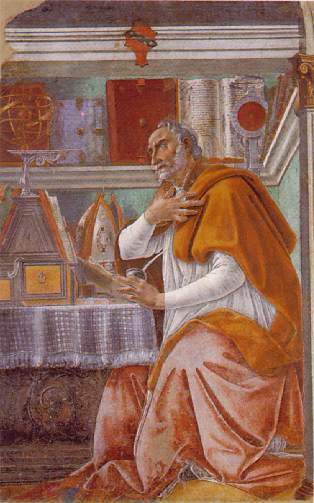 Response to question for Systematic Theology class: "In light of the common deadly occurrences of natural disasters, how can God’s providential care and goodness be realistically upheld?
Response to question for Systematic Theology class: "In light of the common deadly occurrences of natural disasters, how can God’s providential care and goodness be realistically upheld?
This is certainly a timely question to wrestle with in light of recent events in Japan and New Zealand.
Three things are at play here; God, creation and us. In order to understand this we need to rightly understand the present relationship between these three things. As for the relationship between creation and God, we know that it remains intact (even though creation has been subjected to futility, presumably due to its human caretaker's derangement, cf. Rom. 8:23). Creation still submits to God (Mk 4:39) and carries out his purposes, however perplexing and mysterious they may be. What's more, creation remains fundamentally good by virtue of being created by a good God (Gen. 1:31 , I Tim. 4:4). Thus, while creation is certainly affected by the fall, the locus of the fall was not in it. Creation remains good.
The problem comes in humankind's relationship with God, and then has grave implications for our relationship to creation. Joseph [a previous respondent] is right to cite the garden as the tableau wherein our derangement began. The subtle questioning of the serpent enticed the woman to reason for the first time without proper relation to God. She lifts herself up on toothpick legs, takes the heavy fruit, and crashes to the ground, bending and denting her will–and all wills–in on themselves. It was the beginning of moral ambiguity, and the scene has been repeated in every human since, save one. Barth talks about how, as a result of this, every man is made his own judge, determining for himself what is right and wrong. In the fall, for all that was lost, we gained a damned, undulating, interior judicial system (which still, somehow, condemns us). Even the worst among us act according to what we deem "good". So, the murderer murders because that is what seems right to him. The swindler swindles because it is, within his private scheme, what is most appropriate. As the refrain from Judges goes, "each man did what was right in his own eyes".
Besides the implications of this fall for the field of ethics, it has an important bearing on the question of theodicy. Because we have been given over to our private morality, we are no longer able to discern the glorious ends for which God has prepared creation. A "natural disaster" is only a disaster as such for two reasons; that we have been subjected to an unnatural death, and that those left alive are left without the capacity to understand why such a thing has occurred. The hand of God which acts is hidden in a cloud, and, like the Israelites at Sinai, in our unholy baseness we cannot break through (Ex. 19:21). Without this ascendancy, our inward reasoning cannot provide an adequate explanation for that which is fundamentally outside of itself. It can only make guesses. When the hand that moves is hidden by a dark cloud, who can say what its reasons are? Its reasons and its movements are hidden, and we only see its effects, which is to say our perception is always partial. Thus, when a tsunami overwhelms a seaside town, it is tragic because of sickness, injury, and the loss of human life, and all without any satisfying explanation. Such an event would hardly seem so terrible if immortality and our relationship with God remained intact. It would merely be the thundering playfulness of a world praising its Creator in unison with a people free from the knowledge and experience of death.
What is the solution to this futility? Since the fall has left us without the ability to sufficiently understand this world (because such understanding had been the byproduct of our pre-fall interaction with God), the solution to resolving the tragedy of natural disasters lies in the restoration of our relationship to God. For this reason, the story of Job can be read as a reversal of the events of the fall. In it, we are invited to lift ourselves from the dirt, to dust off bloody knees, to "dress for action," (38:3), and consider God's own explanation as he breaks through our senseless palaver. As the book progresses, the private reasoning of man is frustrated and made incredible, and the answer which ultimately satisfies Job is God's demonstration of his sovereignty over creation (rather than an explanation of why such tragedies occurred; cf. Job 38-41). In terms of reason, the book is absolutely frustrating because it provides no other reason than that God is God. But in terms of resolving the enigma of a suffering world, the book is perfect, as it concludes by lifting the reader's focus to the very same place it was when God and humankind walked abreast without conflict. Our eyes are turned from the effects to the hands at work.
It must be granted that such an explanation does not invalidate the pain and suffering of us who live on this side of the resurrection. I do not think men like Pat Robertson have any right or ability to assign explicit meaning to specific events. Nor is it satisfying for those who stubbornly insist on maintaining their private morality (it is actually quite damning). While we still "weep with those who weep" (Rom. 12:15), instead of groaning
against creation, we now groan
with it, anticipating the day when "the creation itself will be set free from its bondage to corruption and obtain the freedom of the glory of the children of God," (Rom. 8:21). In that day, God, humankind, and creation will enjoy the fruit of a fully restored relationship.











 To David VanDrunen we must turn.
To David VanDrunen we must turn.